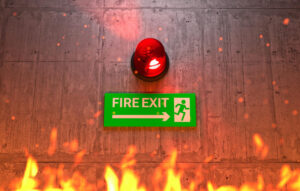Exclusive Neuroject Article: Even in the construction industry, where building certifications are not mandatory, many professionals with a broad range of skills can be employed by obtaining them. These building certifications vary according to the level of skills, type of construction, and industry experience. If you wish to move up in the line of work or develop new skills, you may benefit from building certifications.
Technically speaking, there is no need for any building certification to enter the construction business. Indeed, most workers at a construction site can go on to their careers as apprentices. To put it another way, when you have the right training and education, construction is full of specialty jobs and opportunities. So that you can compete for promotion and gain more marketability in a prospective employer, it is also necessary to seek ways of marking this experience. Several building certifications can help your career, from concrete mixing to the operation of a tower crane.
As the construction industry continues to expand, there are also different types and quantities of building certifications available. Deciphering which are worth it and which might apply to your role (or desired role) can be a challenge. If you’re given the correct qualifications, they can help you stand out and become more valuable than anyone else. We’re going to talk about 11 building certifications that will help you get a better job.
Table of Contents
What’s a Building Certification for?
The word “Building certifications” simply means a document or designation that attests to your proficiency or expertise in one area of work. The typical path to building certification includes applicants sitting through a predetermined number of hours of coursework, taking an exam, and paying a certification fee. As soon as your building certifications are issued, you’ll be more valuable for the current employer and prospective employers.
Generally speaking, building certification is offered by trade bodies, governmental agencies, or private companies with expertise in this sector. These building certifications usually have several qualifications that must be fulfilled by candidates. work experience or education, and the course length may vary between 4 hours and 8,000 hours by this building certification. Some courses are completely available on the internet, while others must be taught in person.
Generally speaking, certification may deal with a range of subjects including safety procedures or specialized occupational sectors like welding. Certifications for project management, electrical work, plumbing, sustainability building practices, and many more are typical examples of building certifications.
Benefits of Building Certifications
Building certifications can have a great effect on your career, whether you’ve been working as a builder or just starting in the construction industry. There are several reasons to consider having one or more building certifications:
- Make your Company’s Logo Distinctive. It may be useful to enhance your customer base and reassure prospective clients that their construction professionals can provide the best quality of work for which they are willing, by including building certification in a firm’s logo.
- Increase your Value. If you work for a construction company, you might be able to negotiate a higher salary if you earn building certifications. You may be charged more for your own business if you’re running a construction firm, compared to other builders who do not have building certifications.
- Make Sure You Stand Out. You’re showing your commitment to learn more about the construction industry by obtaining Building certifications. It may be more likely for employers to take your application seriously if you have obtained a construction qualification which indicates that you are determined to improve your professional skills.
- Make Sure the Company’s Brand is Improved. In addition, by providing your building certifications on the company’s brand and reassuring prospective clients that their engineers are capable of completing quality work to their satisfaction, you might be able to draw more customers.
Are Building Certifications Worth the Effort?
It’s certainly worth the investment in yourself and your team with construction qualifications. They make a lot of sense, such as increasing the credibility and marketability of your enterprise, and reinforcing team construction skills so that they can contribute more effectively to overall productivity. It means better projects and higher amounts to be paid. Likewise, the skills and knowledge you gain may help to guide your staff through complex projects if you are applying for building certifications.
Building certifications can also lead to a lower level of errors and a reduction in risks from injury or accidents on the job. You also demonstrate that you invest in the development of your staff by making it easier for them to obtain certification. They may also feel appreciated and gain an understanding of how their tasks align with the company’s objectives. Your employees will also be more engaged and committed to your company.
Networking opportunities are also offered through numerous building certifications which allow you to connect your employees or companies with different professionals and businesses. For example, access to a network of engineers and surveyors is provided by becoming certified with the National Commission for Excellence in Engineering and Surveying. There can be opportunities for collaboration through these connections, making it more convenient to monitor industry news and trends.
It’s just the beginning, of investing in building certifications! Knowledge Base will consolidate all your training material and resources in a single location so that you can benefit from the expertise of your team. To improve the skills of your team, and to promote a culture of continuous learning, set up an online repository of useful content.
These building certifications may assist your company in the development of major projects. internationally financed or government-funding projects. A highly skilled workforce is needed for such projects, and certificates ensure that your staff has met strict standards and qualifications established by any regulatory authority or potential client.

1. LEED Green Associate Certification
The LEED (Leadership in Energy and Environmental Design) Green Associate certification is a highly recognized credential for professionals involved in sustainable construction and green business practices. Sustainable design, construction, and operation of buildings are covered by this certification course. It also measures your knowledge of energy efficiency, water conservation, indoor environmental quality, and sustainable site development.
You or your employees must pass a two-hour examination of 100 multiple-choice questions on sustainability to become an associate member of the LEED Green Team. The test can be carried out in a testing center or on the internet by you and your team. The LEED program provides numerous resources to assist you with preparation for the exam.
You or your team will have to take 15 additional education hours over 2 years to keep the certificate. Projects, studying for courses, writing, and volunteering in the area of environmentally friendly buildings can be used to earn hours.
Who can Benefit from these Building Certifications?
Anyone working in Sustainable Building and Green Business Practices, architects, contractors, consultants, project managers, engineers, or surveyors is perfectly suited to receive the LEED associate certificate. This specific one of Building certifications may also help your company to make a name for itself in the eco-construction sector, as it develops expertise and demonstrates sustainability commitment.
Pros
- Makes it possible to access a network of professionals and industry experts.
- Makes it easier for you to get involved in the booming green building market
Cons
Foundation course, to be able to undertake additional courses on specific sustainability projects
Cost
The cost of a LEED certification depends on the fees for each exam, as well as preparatory resources. The fee for an examination is usually $250, while the preparatory resources are between $155 and $399.
2. Aerial Lift Training Certification
To help you or your team with the skills and knowledge that are necessary for the operation and safe working of an aerodrome, it is possible to obtain certification in Aerial Lift Training. The certification applies to specific topics such as the operation of equipment, safety protocols, hazard recognition, preparation checks, the correct application of fall protection systems, emergency procedures, and maintenance practices.
It will help you and your staff to be more secure on the job site, avoiding injuries and accidents. Using sites like Hard Hat Training and the OHS Education Centre, you will be able to take this course over the Internet.
Who can Benefit from these Building Certifications?
Operators, instrument technicians, safety supervisors, trainers and anybody working with lifts can take advantage of the altitude training certificate. The construction industry, of course, would benefit greatly from such building certifications, but it also benefits workers in the maintenance, storage, and telecommunications sectors.
Pros
- Provides detailed information on the safe operation of aerial lifts
- Educates on compliance with safety regulations and industry standards
- Focuses on safe practices, reducing the risk of on-site accidents, injuries, and damage
Cons
- The renewal shall be required every 3 years.
Cost
Depending on the training provider and educational program, the cost of an APE certificate may be different. The certification costs can range from $100 to $400, in general.
3. Occupational Safety and Health Administration’s (OSHA) Outreach Training Program Certification
The Occupational Safety and Health Association’s outreach training program, which is a great option for you and your team, deals with safety and health topics. It involves the identification of risks at work, identifying possible risks, and carrying out safety measures. Emergency response planning and regulatory compliance will also be covered.
An OSHA outreach course is offered as a 10-to-30-hour program, taught by an authorized OHS trainer. The meeting is primarily designed for entry-level workers, with a duration of 10 hours. In the meantime, there’s an intensive thirty-hour training course for staff who are responsible for their safety. The longer training program offers a greater degree of depth and variety that is particularly relevant for specific sectors. More details about what this is all about are not available on the Occupational Safety and Health Administration’s website.
You will learn what to look out for, and how to avoid and manage hazards at workplaces in both programs. Nevertheless, standards of the Occupational Safety and Health Administration are covered by both programs. You can complete this certification online, at a local OSHA Training Institute (OTI) Education Center, or through an OSHA state or Consultation office.
Who can Benefit from these Building Certifications?
Any construction worker who requires knowledge of how to deal with common health and safety hazards encountered on the job sites may benefit from this certification. For those workers with less responsibility for security, such as entry or lower-level personnel, the 10-hour program is ideal. For more experienced team members like supervisors and managers who are already responsible for safety on the premises at 30 hours a day, this program is very useful.
Pros
- Having higher-level security management positions, can be a prerequisite
- 2 program options Teach to comply with safety regulations.
- teach you how to lower your risk of injury and accidents on the job.
Cons
- It doesn’t apply to OSHA standards.
Cost
Depending on the training provider you’ve chosen, your training costs vary. There’s a range of $60 to $200 for educational courses over the internet. For the ten and thirty-hour courses, in-person classes are usually between $200-300 and $500-600.
4. Certified Safety Manager (CSM) Certification
Some topics, including the identification of hazards, risk assessment, development of security plans, legal compliance, and incident investigation are covered by a certified Safety Manager CSM certification. Certification in the field of safety management entails completing a training program and passing an exam.
Organizations such as the National Association for Safety and Security Professionals provide a training program of 40 hours. The training can be completed in six months, but no prerequisites are required. You and your staff must score 80 % or more on this test to take the course, but there are two chances you’ll succeed.
Experts in health and safety, risk management professionals as well and human resources personnel working for construction undertakings can also benefit from the CSM certificate. Overall, anyone looking to improve safety at the construction site can use this certification as a valuable asset. Every three years, a refresher course and a test are required for the maintenance of the manager’s certificate, which costs $395.
Who can Benefit from these Building Certifications?
For many construction workers, certification as a Certified Safety ManagerCSM is an excellent option. These building certifications can be obtained by security managers and officers to further their current knowledge in the field of safety management, or for those who wish to pursue a career in Security Management as a starting point.
Pros
- Enables you and your team to be safe in managing the construction site
- This course has a high reputation in the construction industry
- Provides training in the specific safety knowledge and regulations
Cons
- The necessary refresher course and examination for the completion of this certificate
Cost
Costs vary depending on the training provider and location but typically start from $395 for the exam and program enrollment.

5. National Council of Examiners for Engineering and Surveying (NCEES) Licensure
The National Council of Examiners for Engineering and Surveying (NCEES) issues licenses to professional engineers and surveyors in the US. This certification requires certain things to be met by you or your team members.
To become a professional engineer, you must Have a bachelor’s degree from a program certified by the Engineering Accreditation Commission of the Accreditation Board for Engineering and Technology (EAC/ABET) and also Have four years of relevant experience in the field Pass the Fundamentals of Engineering (FE) exam and the Principles and Practice of Engineering (PE) exam.
The same is true for the professional assessor’s program, which has one major difference. You’ll need to pass the Fundamentals of Surveying (FS) exam, the Principles and Practice of Surveying (PS) exam, and a state-specific exam.
Who can Benefit from these Building Certifications?
It is particularly suited to engineers in the fields of mechanical, structural, electrical, and civil engineering as well as surveyors on construction sites because NCEES certification primarily focuses on design.
Pros
- Provides the ability to connect with a network of professionals and resources
- Provide help to your company when bidding on more complex engineering projects
- Well-regarded building certifications
Cons
- To qualify, significant time investment in acquiring skills and experience.
Cost
The NCEES certification costs are different from one discipline to another, based on the respective requirements of each state. The FE, FS, and PE exams average around $175 while the PS exam is about $300 to $500.
6. American Concrete Institute (ACI) Certification
You or your team may be able to obtain new skills and knowledge in the area of Concrete Construction by obtaining an ACI certificate. Through the inspection, testing, and construction specialization program of the U.S. Concrete Institute, 30 special qualifications are offered.
To become certified, you need to go through four steps: Choose the program of training that will best suit your profession or education level, as well as workers’ roles and qualifications. To find a testing and training location, you need to select one of the 120 sponsoring Groups. Let’s get ready for the exam as well. To assist you in this, the ACI provides online tools such as workbooks and training courses. Take the exam.
To be eligible for this qualification, you and your employees do not have to possess any particular educational qualifications or experience in their respective fields. Nevertheless, online training is recommended as a preparation for the exam by the ACI.
Who can Benefit from these Building Certifications?
For concrete inspectors, laboratory techs, concrete installers, project managers, and quality control experts the ACI certification is a good choice.
Pros
- No prerequisites required
- A highly accredited certification to manage construction.
Cons
- It needs to be renewed regularly.
Cost
The program and level you choose are important factors for the cost of obtaining an ACI certificate. Usually, that is between $200 and $500 to cover study expenses, training costs, or exam fees.
7. Crane Operation Certification
The certificate in crane operation shall enable you or your teams to acquire the necessary skills for the safe and efficient operation of cranes on construction sites. It includes the type of crane, load-handling and rigging techniques, installation and maintenance procedures for cranes, safety policies, and regulatory compliance.
In 14 categories of crane operation, the National Commission for the Certification of Crane Operators offers 29 certificates. Both the ANSI National Accreditation Board, ANAB, and International Standard ISO17024 accredit all NCO certificates.
Federal OSHA recognizes the certificates, too. To be certified, you have to pass the basic writing test, at least one specialty examination, and a practical exam not later than 12 months after completion of the written test.
Who can Benefit from these Building Certifications?
For operators of cranes, a certificate of crane operation is required. It is also helpful for equipment engineers, safety managers, rigmen, trainers, and all workers in the field of crane operation.
Pros
- Provides a solid base for the use of crane techniques
- Industry-recognized certification
- Teaches the safe operation of the crane to reduce the risk of accidents on the job site
Cons
- Additional training on other types of cranes and equipment may be required.
- The renewal is required every five years.
Cost
Depending on the certification program and level, the cost of a certificate in crane operation will vary. Depending on the certification provider, site, and type of certificate, the total cost through NCO can be as high as $500-450$350.
8. The Project Management Institute’s (PMI) Project Management Professional (PMP) Certification
Offered by the Project Management Institute (PMI), that demonstrates knowledge, skills, and expertise in leading and managing projects.
It covers the initiation, planning, execution, monitoring control, and closure of projects. Moreover, it stresses the best project management practices, techniques, and industry standards defined by the Project Management Institute.
You or your staff must have one of the following items to obtain PMP certification: A four-year university education, 36 months of professional experience in the field of program management, and 35 hours of course on project management. A bachelor’s degree, 60 hours of experience in the management of projects, and 35 hours of project management training.
Before applying for a PMI exam, you will also have to provide evidence of your experience and education. The PMP test consists of a four-hour exam in which 200 multiple-choice questions are taken on the computer. You must receive 60 Professional Development Units in 3 years for the renewal of your certificate. You can get one PDU per hour of project management education, but it is necessary to complete approved project management courses to receive PDUs.
Who can Benefit from these Building Certifications?
PMP certification in different industries allows experienced and potential project managers, consultants, or analysts to gain a general understanding of the field.
Pros
- The global standard for project management has been widely recognized.
- It enables access to a worldwide network of professionals and enterprises
Cons
It’s a requirement that you renew it every three years.
Cost
It will cost $405 to take the test and $555 for nonmember members. Costs related to learning material, training courses, and renewal costs may also be included in the exam fee.
9. Construction Management Association of America’s Certified Construction Manager (CCM) certification
A prestigious qualification that shows your expertise in construction management is the Certified Construction Manager CCMA certification, offered by the USCM Association. The certification covers everything related to project management, expenditure control, scheduling, quality assurance, and ethics.
To qualify for the CCM qualification, students need a 4-year bachelor’s degree and four years of experience in construction management. In addition to a bachelor’s degree, you or your team members who apply for this certificate shall have 8 years of experience in the construction sector and 4 years as managing director. To obtain certification and renew a certificate every 3 years, you must pass the CCM exam.
Who can Benefit from these Building Certifications?
For project managers, construction supervisors, construction consultants, and construction executives, the certification of the Certified Construction Manager CCM is beneficial.
Pros
- It allows access to a network of experts and companies.
- The construction management program is highly regarded.
- Internationally recognized.
Cons
- Strict eligibility criteria
- Can be expensive
Cost
Certification costs typically range from $275-$325 for members and $275-$425 for non-members. The recertification fee will be $200.
10. Construction Health and Safety Technician (CHST) Certifications
The Construction Health and Safety, offered by the Board of Certified Safety, helps construction workers in leadership positions to understand the proper safety practices to keep their teams safe. Many professionals use this certification to advance their careers toward higher safety management positions.
For eligibility, workers are required to work in a construction role requiring basic safety training on a part-time or permanent basis. They must also have three years of practical experience in the sector. Holders of CHST certificates need to stay up to date with yearly fees if they are to retain their certificates.
Who can Benefit from these Building Certifications?
Complete the preparatory exam and the CHST review exercises with taking stock of your strengths and weaknesses, so that you can prepare for the CHST exam. You can use your position as a safety and health technician for a construction project.
Pros
- Professional workers in the healthcare and safety sector are in demand.
- Workplace Health & Safety Officers have a multitude of career paths available.
- Career requirements learning and skill building.
Cons
- Can be stressful
- Requires continued learning and skill-building
Cost
Once your application is approved, you are required to purchase and take the test within one year. Once your CHST request is granted, the examination will cost you $300 and be available for purchase.
11. Certified Safety Manager (CSM)
The safety manager is a vital part of any construction team. They assist in the prevention of fatal accidents and are capable of drawing up a construction safety plan that mitigates other risks on site. It is not surprising, given the critical responsibilities involved, that these roles require intense training.
A four-year degree and five years of professional experience make up the majority of people in safety roles. Certification such as that of the certified Safety ManagerCSM training course offered by the National Association of Safety professionalsNASP can also be useful.
This course will certify that the holder knows construction site safety fundamentals such as compliance with occupational health and safety requirements, developing security programs, carrying out investigations into workplace accidents, and setting an efficient safety culture at work.
Who can Benefit from these Building Certifications?
There are many benefits to earning the professional certification of a safety manager. This prestigious certification helps you establish your credibility in the field. Another advantage of pursuing a safety manager certification is that it establishes your expertise as a safety leader. These certifications can improve your skills and knowledge of the field, as well as your credibility as an educated, knowledgeable professional. The National Association of Safety Professionals offers certification for those who want to enter the field of safety. This professional certification is the gold standard and gives safety managers a competitive advantage in the hiring process.
Pros
- In the field of health and safety, the General Certificate is widely respected and well-known as a gold standard.
- The content of the course is built and evaluated by the world’s best health and safety experts.
- The course is geared towards employers’ needs, which means that the skills you learn are immediately applicable irrespective of your area of employment.
Cons
- If consumer prices increase, they may not be high enough to keep pace with inflation.
Cost
A recent study by the Board of Certified Safety Professionals shows that those with at least one safety certification earn up to $20,000 more annually than those who don’t. Professional building certification of safety professionals increases the chances of getting hired. According to the 2020 SH&E Industry Salary Survey, professionals who have the certification earn more than non-certified individuals.

How you can Select the Right Certification for your Team
It doesn’t take a lot of work or stress to find out which certification is right for your team. Ensure that building certifications are perfect for both you and your workers, by following these instructions.
- Evaluate the Certification’s Eligibility Criteria—including required years of experience and education credentials—to ensure it’s a realistic option for your team. In any case, a team may not be able to dedicate more than 2 years of effort towards the attainment of this certificate. It might be more feasible to proceed with the certification in a shorter period, for example, several months.
- Select Certificates that will give your professional team the most benefit, either by covering particular areas of expertise they care about or improving their ability to work together. Project management, safety, and specialized work may fall into this category.
- Consider the Development of Your Enterprises and determine which building certifications can promote this vision. You can concentrate your personnel on safety and concrete training specifically if you’re a concrete contracting company. Or, if you’re interested in supervising big-scale projects at your firm, you can become a certified project manager with the right one of these building certifications.
- Take into Account the Reputation of a certification organization, and ensure that it is well known in the construction industry. Building certifications are issued by industry organizations and public authorities in the majority of cases so that their reputation should be strong. However, conduct your research and make certain that the certifying organizations have an excellent record in providing comprehensive training.
Conclusion
Certifications in the field of construction will help you and your staff demonstrate knowledge and skills in project management, aerial lift and crane operations, security best practices, team management as well as more. And it also enhances the reputation of your firm, which allows you to be noticed and preferred by a higher number of prospective clients and customers.
As they have specific focuses and advantages, the only “best” construction certification is not one of those. Consideration of team experience levels and the company goals and interests when selecting a certificate to be awarded. A perfect way to advance your career and your company is to take one of these building certifications courses on this list!
The process of certification for your team can be streamlined using building certification, the all-in-one employee management software. You can schedule training sessions, share learning materials, and track the progress of every member of your team through a certification easy-to-use platform. In addition, building certifications provide all the necessary tools to operate successfully in the construction sector. Building certifications offer you a wide range of features, including employee scheduling, time tracking, task management, internal communications, and the complete HR suite.
Suggested article to read:
Discovering the World’s Top 21 Sustainable Buildings
Top 24 Sustainable Construction Technologies
Resources:
investopedia | bigrentz | levelset | esub | sharplaunch
For all the pictures: freepik




